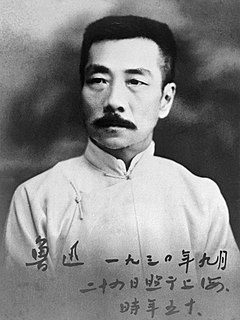A Quote by Kim Jong-un
The great leaders called the working class first whenever difficult and gigantic tasks arose for the revolution, and ushered in fresh heydays of the revolution by relying on them.
Related Quotes
The People's democratic dictatorship needs the leadership of the working class. For it is only the working class that is most far-sighted, most selfless and most thoroughly revolutionary. The entire history of revolution proves that without the leadership of the working class revolution fails and that with the leadership of the working class revolution triumphs.
...it was always our view that in order to attain this [proletarian revolution] and the other far more important aims of the future social revolution, the working class must first take possession of the organised political power of the state and by its aid crush the resistance of the capitalist class and organise society anew.
The Bolshevik revolution was a counter-revolution. Its first moves were to destroy and eliminate every socialist tendency that had developed in the pre-revolutionary period. Their goal was as they said; it wasn't a big secret. They regarded the Soviet Union as sort a backwater. They were orthodox Marxists, expecting a revolution in Germany. They moved toward what they themselves called "state capitalism," then they moved on to Stalinism. They called it democracy and called it socialism. The one claim was as ludicrous as the other.
The dominant, almost general, idea of revolution - particularly the Socialist idea - is that revolution is a violent change of social conditions through which one social class, the working class, becomes dominant over another class, the capitalist class. It is the conception of a purely physical change, and as such it involves only political scene shifting and institutional rearrangements
Whatever the country, capitalist or socialist, man was everywhere crushed by technology, made a stranger to his own work, imprisoned, forced into stupidity. The evil all arose from the fact that he had increased his needs rather than limited them; . . . As long as fresh needs continued to be created, so new frustrations would come into being. When had the decline begun? The day knowledge was preferred to wisdom and mere usefulness to beauty. . . . Only a moral revolution - not a social or political revolution - only a moral revolution would lead man back to his lost truth.
After the countrywide victory of the Chinese revolution and the solution of the land problem, two basic contradictions will still exist in China. The first is internal, that is, the contradiction between the working class and the bourgeoisie. The second is external, which is the contradiction between China and the imperialist countries. Consequently, after the victory of the people's democratic revolution, the state power of the people's republic under the leadership of the working class must not be weakened but must be strengthened.
The word 'revolution' first brings to mind violent upheavals in the state, but ideas of revolution in science, and of political revolution, are almost coeval. The word once meant only a revolving, a circular return to an origin, as when we speak of revolutions per minute or the revolution of the planets about the sun.
The white man knows what a revolution is. He knows that the Black Revolution is worldwide in scope and in nature. The Black Revolution is sweeping Asia, is sweeping Africa, is rearing its head in Latin America. The Cuban Revolution - that's a revolution. They overturned the system. Revolution is in Asia, revolution is in Africa, and the white man is screaming because he sees revolution in Latin America. How do you think he'll react to you when you learn what a real revolution is?
First, what is a revolution? Sometimes I'm inclined to believe that many of our people are using this word "revolution" loosely, without taking careful consideration [of] what this word actually means, and what its historic characteristics are. When you study the historic nature of revolutions, the motive of a revolution, the objective of a revolution, and the result of a revolution, and the methods used in a revolution, you may change words. You may devise another program. You may change your goal and you may change your mind.
Revolution is a bitter thing, mixed with filth and blood, not as lovely or perfect as the poets think. It is eminently down to earth, involving many humble, tiresome tasks, not so romantic as the poets think... . So it is easy for all who have romantic dreams about revolution to become disillusioned on closer acquaintance, when a revolution is actually carried out.
A revolution is bloody. Revolution is hostile. Revolution knows no compromise. Revolution overturns and destroys everything that gets in its way. And you, sitting around here like a knot on the wall, saying, “I’m going to love these folks no matter how much they hate me.” No, you need a revolution. Whoever heard of a revolution where they lock arms, as Reverend Cleage was pointing out beautifully, singing “We Shall Overcome”? Just tell me. You don’t do that in a revolution. You don’t do any singing; you’re too busy swinging.



































